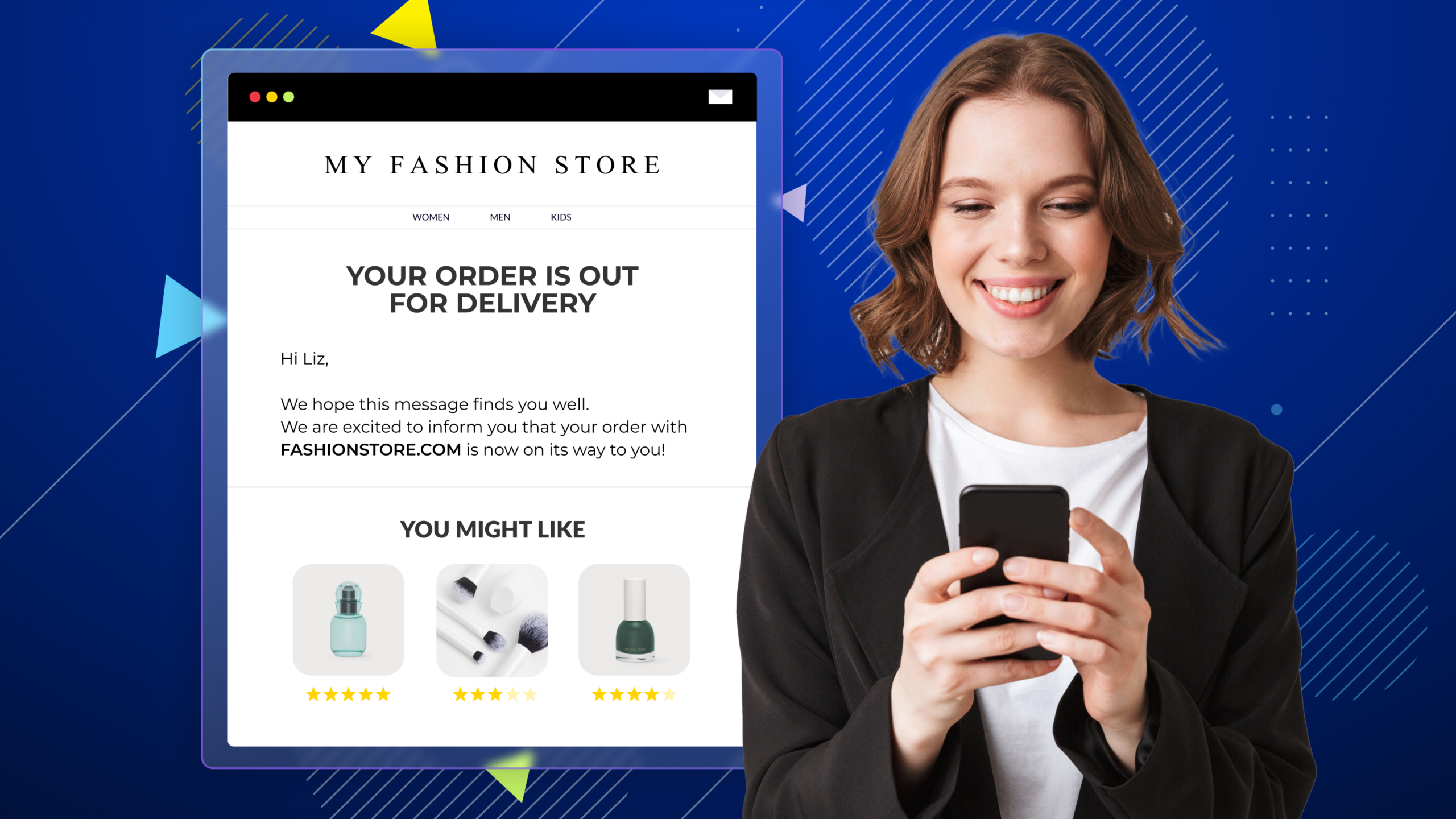Contents
Increase conversions and cros-selling opportunities with parcelLab Engage.
Learn moreWhat is marketing automation?
Published on: December 19, 2023
Updated: January 18, 2024
Marketing automation refers to the use of software platforms and technologies designed to streamline your marketing efforts and customer communications. As its name suggests, marketing automation enables you to automate various marketing activities across multiple channels—including email, social media, ecommerce sites, etc.
This not only reduces manual work, it also allows you to send personalized and timely interactions with potential and existing customers.
In short, marketing automation enables you to send the right messages to the right people at the most optimal time.
It’s no wonder then that it’s one of the most adopted technologies for businesses. Research by Social Media Today found that 75% of companies use at least one type of marketing automation tool.
What is marketing automation software?
Marketing automation software is the tool (or set of tools) that powers your marketing automation efforts. It’s the technical platform through which you can plan, coordinate, manage, and measure all your marketing campaigns.
If you’re an online retailer, then your initiatives should run on your ecommerce marketing automation software.
An important component of any ecommerce tech stack, marketing automation software facilitates various components of your campaigns, which can include the following.
| Marketing campaign components | Description |
|---|---|
| Lead capture | Tools to gather potential customers' information for future marketing efforts |
| Lead nurturing | Strategies to develop and strengthen relationships with potential buyers |
| Email marketing | Sending targeted messages to engage and convert email subscribers |
| Multi-channel campaign management | Coordinating marketing efforts across various platforms and channels |
| Personalization | Tailoring content and offers based on individual user behaviors and preferences |
| Analytics | Analyzing data to measure and optimize campaign effectiveness and ROI |
How do you implement marketing automation?
Implementing marketing automation starts with selecting and implementing your marketing automation software—so make sure you choose the right solution for your business.
Here are the key things to keep in mind when selecting an ecommerce marketing automation solution.
Integration with your existing tech stack
See to it that the marketing automation software works with the existing apps and platforms you have in place.
The most important component here is your ecommerce platform. Whichever solution you choose, it should seamlessly integrate with your ecommerce system. That way, sales and customer data can flow seamlessly into your marketing solution. This makes customer management easier and you’ll be able to implement cohesive marketing strategies across all channels.
If you’re using cross-selling and upselling tools, connecting them to your marketing automation can make it easy to provide tailored product recommendations.
It’s also helpful to integrate your marketing automation software with your post-purchase platform. This helps you optimize your post-purchase communications and automate after-sale messages. By doing so, you can enhance your post-purchase marketing efforts, encourage repeat purchases, and effectively address any post-sale issues or concerns.
Communication channels
Next up, think about where and how you want to reach your audience and see to it that your marketing automation solution helps you be where your customers are.
For ecommerce businesses, this often means a mix of email, social media, SMS, web push notifications, and possibly even messenger platforms or chatbots. Each channel offers a unique way to engage with customers, but they need to work cohesively.
As such, when shopping around for marketing automation software, ensure that it covers the right channels.
Segmentation and personalization features
These days, personalization is no longer nice to have; it’s a necessity. Consumers expect brands to understand their preferences and deliver tailored experiences that resonate with their unique needs and interests.
Research by McKinsey shows that personalization marketing “can reduce customer acquisition costs by as much as 50 percent, lift revenues by 5 to 15 percent, and increase marketing ROI by 10 to 30 percent.”
That’s why it pays to have a marketing automation tool with robust personalization and segmentation capabilities that enable you to implement personalization and ecommerce remarketing.
Such capabilities can include::
- Dynamic content
- Segmentation features
- Behavioral triggers
- Automated or AI-driven segmentation (just be wary of software providers that falsely claim their solutions are AI-powered)
- Geotargeting (as long as you’re aware of and comply with geotargeting laws)
- Buying lifecycle targeting and personalization (again, be aware of the right and legal way to track consumers)
Analytics and reports
When it comes to marketing automation, it’s crucial to understand how your campaigns perform on different channels. Your software should shed light on metrics like open rates for emails, click-through rates for SMS, and engagement rates for social media.
Bonus points if it can offer deeper and tailored insights based on your data.
Why is marketing automation important?
Why implement marketing automation? Simple: in today’s fast-changing landscape with sky-high consumer expectations, doing things manually is extremely suboptimal, to say the least.
Marketing automation paves the way for higher engagement, lower ecommerce costs, and better ROI on your marketing dollars.
In fact, research cited by Invesp indicates that on average, marketing automation can lead to a 14.5% rise in sales productivity and a 12.2% reduction in marketing overhead.
Higher efficiency
Marketing automation streamlines and automates repetitive marketing tasks, freeing up time for other strategic activities. No need to manually segment your list or go through each individual message. With marketing automation, you can put these things on autopilot and get more important things done.
A better customer experience
Marketing automation enables you to implement personalization at scale while reaching shoppers across multiple channels. All that leads to a more consistent and enhanced brand experience, which then results in more loyal customers and better conversion rates.
A deeper understanding of your customers
Automated systems can continuously gather and analyze data, offering insights into customer behavior, campaign effectiveness, and areas for improvement.
This, in turn, helps you understand your customers and marketing efforts better so you can level up your efforts and improve your results.
Higher potential to drive sales and loyalty
At its core, marketing automation empowers you to market more effectively. Whether it’s informing new customers about a sale or nurturing existing customer relationships to encourage repeat business, marketing automation makes all of these steps easier.
And when implemented correctly, marketing automation allows you to stay top of mind, so you can continuously drive traffic and sales.
Learn More About parcelLab's Product Suites
Provide a predictive delivery date that increases conversions, reduces uncertainty, and improves customer satisfaction.
Learn moreEnhance your post-purchase journey with personalized communications that keep customers informed every step of the way.
Learn moreTurn potential customer dissatisfaction into an opportunity for revenue retention by digitizing your returns process.
Learn moreTransform Your Post-Purchase Experience
Learn more about how parcelLab can get you up and running quickly.

